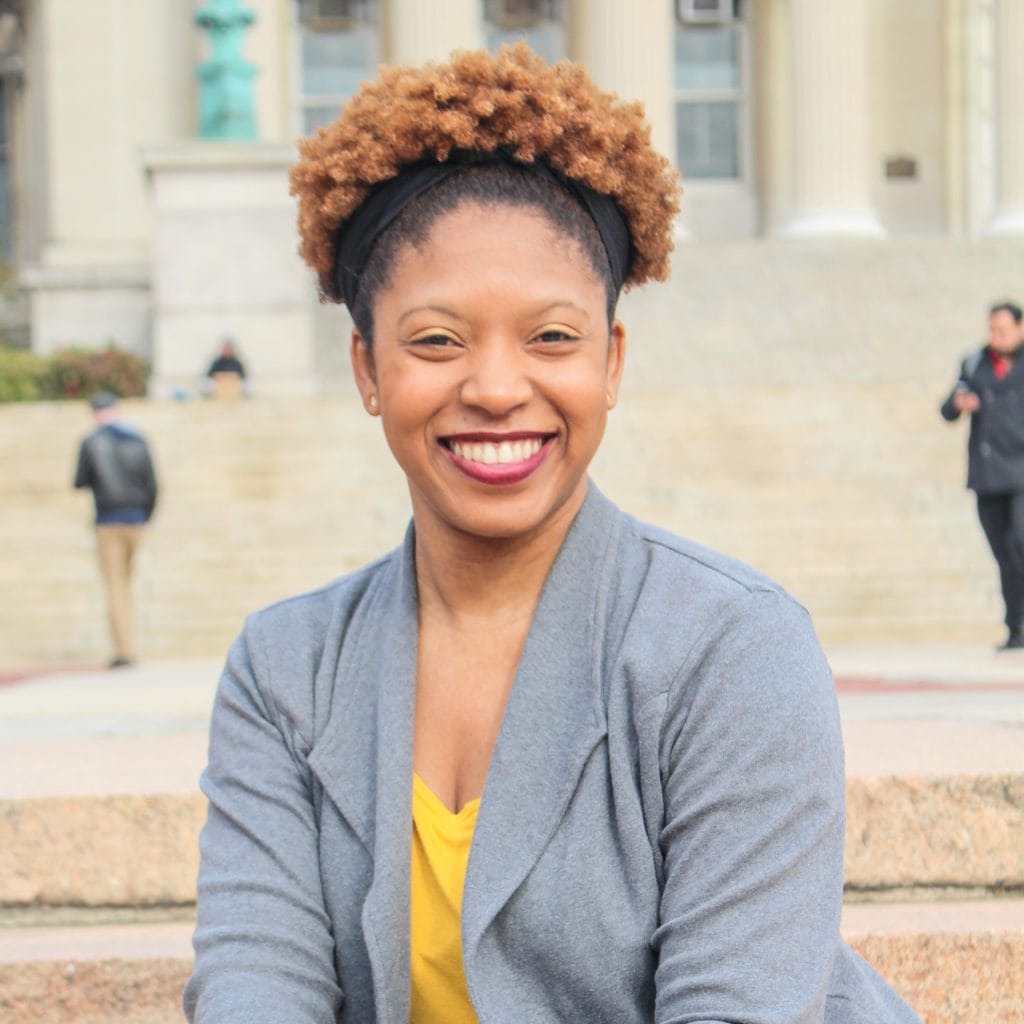By Rev. Mia M. McClain
In my childhood church in New Orleans, when the preacher was in the heart of their sermon, they’d often solicit a verbal response. We have a tradition in African American sacred rhetoric of call and response. It is a major part of the sermonic experience in many Black churches. Our sacred rhetoric requires us to say something. There is an expectation that you’re going to talk back to the preacher and let that preacher know you’re alive. The preaching isn’t one-sided; it isn’t a lecture. Sometimes, when the message was getting good to the preacher, they’d yell out from the pulpit, “Can I get a witness up in here? Y’all don’t hear me!”
In other words, “Can somebody testify on my behalf?” “Can there be evidence of the power of what I am saying and the power that works beyond what I am saying?”
The expectation of the sermonic moment—the declarative moment—was that the people would exercise their agency and authority with the proclaimer, becoming co-conspirators in the work of witnessing. It was/is a communal activity requiring folks to speak up and carry on the message of liberation.
If there has ever been a moment in our history where we are needed to use that agency and authority to talk back, it is now. With the overturn of Roe v. Wade, reproductive rights have been attacked amidst a national shortage of baby formula. We’re experiencing a national affordable housing crisis, and youth suicide rates are climbing while free healthcare services are declining. Our transgender siblings are being criminalized for merely existing and desiring life-giving health care. The grief is overwhelming. The corruption is sickening. The chaos and calamity seem never-ending. It has been a vicious and abusive cycle, and our futures depend on our ability to say something—to talk back—to witness in the weariest wilderness.
Our grief is not unlike the grief of the apostles and those early followers of the way of Jesus. At the time the Acts of the Apostles was compiled, the turmoil in the land was pervasive. A persecuted people had lost their leader and the persecution was only getting worse. It was a time of confusion. It was a time of massive mourning. Amidst the hope brought forth by the resurrection, the ongoing grief lingered in the atmosphere following Jesus’ ascension.
We don’t have to stretch our minds too far to imagine the emotional landscape present at the time. We have seen the grief in our churches. Many of our members don’t even have the words to name the grief. Occasionally, it looks like discontent with low in-person worship attendance and judgment of clergy for the aforementioned. Sometimes, it looks like the hesitance of the ministerial team to dream too far in the future because we all remember our plans for 2020 being delayed repeatedly, forced onto zoom, or downright canceled. What are we to do with all the grief we’ve accumulated over the last 2.5 years? How are we to dream again?—to hope again? What are the folks who claim to follow the teachings of a poor carpenter from Nazareth to do with the unbearable uncertainty in a volatile political and social climate?
When Jesus reappears to his disciples in Acts 1, we see Jesus, the teacher, the great commissioner, the friend, answering their questions, offering wisdom—helping them grieve and hope simultaneously. In their final conversation, one of the disciples asks, “Lord, is this the time when you will restore the kingdom to Israel. Jesus replies, “It is not for you to know the times or periods…But you will receive power when the Holy Spirit has come upon you; and you will be my witnesses.” In this moment, not only does Jesus focus them, but he also emboldens them to be courageous in a calamitous world—to step into their authority and speak truth to power for the sake of survival. Even in their mourning and uncertainty, they should have a hope for a future.
I imagine Jesus reappearing to his grief-stricken and confused friends with his arms stretched wide with the holes in his hands and abdomen, saying, “Can I get a witness up in here?” “Can somebody—anybody—testify to what God has done? Don’t just testify about the nails in my hands and the stone that was rolled away. Tell them that I turned over tables in the temple because folks were making a mockery of the House of God. Tell the people how I disrupted the dangerous status quo so that the least of these could have life more abundantly. Tell them how I healed on the sabbath, how I took the bread of the priests and gave it to the poor and how I befriended a Samaritan woman and a thieving tax collector. Can I get a witness?”
The problem in many Christian communities today is that many are more concerned with witnessing in order to “save souls” when we need to be witnessing to “save lives.” As the church elders used to say: “they are so heavenly minded, but of no earthly good.” The witnessing we often hear is about condemnation, not liberation. It is about otherworldly miracles and spectacle and the desire for souls to be saved for a great beyond far away from the earth we walk on. But the witnessing that is needed to save us—to set us free—is a witnessing that’s about saving lives. It is a witnessing that is communal and not led by a single individual. It requires folks to talk back—to be co-conspirators—to exercise agency and authority for the sake of life. It is witnessing that requires sustained organizing to get people the reproductive care they need and desire. It is witnessing that demands us to clog up the phone lines and voicemails of senators who can make important decisions regarding gun safety laws. It is witnessing that challenges white Christian nationalism in all of its forms and isn’t afraid to lose privilege, prestige, or church members for doing so.
There is recovery that needs to take place.
There are supremacies that need to be demolished.
Can we get some witnesses up in here?”
We need a witness to carry a gospel of abolition to the incarcerated, so that we can truly walk in the footsteps of a Jesus who came to set the captives free. We need a witness to flip tables in Florida, Texas, Alabama, and New York. When we witness, we are putting our lives and our privileges on the line so that others can be set free. We are redistributing wealth and power. We are demanding accountability from law enforcement and government bodies who have repeatedly displayed a lack of care for Black, brown, non-cisgender, and other bodies.
This is what Jesus is calling his disciples to—this is what Jesus is calling the Church to—the outward gaze and the earthly tasks at hand, for the sake of life. Will you be a witness with me?
Witnessing Resources
1. To learn more about gun reform: text “act” to 64433
2. To learn more about how to support transgender youth and adults, visit:
3. To learn more about reproductive justice:
- Carolina Abortion Fund https://www.carolinaabortionfund.org
- Spiritual support to those considering or post abortion: Abortionswelcome.org
- Get educated: @drjeanius (Black OBGYN) or @publiced.advocate.tay (policy advocate) both on TikTok
More education: AKA Jane Roe on Hulu https://www.guttmacher.org/ for global statistics on abortion & reproductive rights

Rev. Mia M. McClain is a songwriter, pastor, king-cake lover, and dancer. She is a licensed Baptist minister and ordained in the United Church of Christ. She currently serves as the Associate Minister at congregational partner Myers Park Baptist Church in Charlotte, NC.




Recent Comments